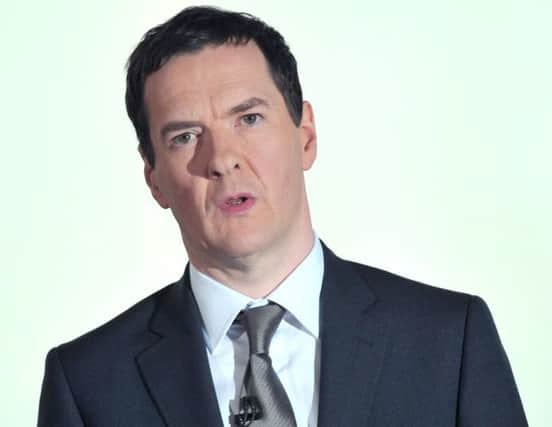‘Good news for the middle classes’ as inflation tumbles to record low


Falling food costs and plunging petrol prices were responsible for pushing the rate to 0.3 per cent - the lowest the UK has seen for 25 years - last month. Figures from the Office of National Statistics published yesterday show a basket of goods and services that cost £100 in January 2014 would have been just 30p more last month.
Economists have predicted a “brief period” of deflation is imminent, and Paul Hollingsworth, of consultancy Capital Economics, said consumers are likely to have seen the full impact of low oil and food prices, but other goods are yet to feel the full effects.
Advertisement
Hide AdAdvertisement
Hide AdChancellor George Osborne sought to silence critics’ attacks in the wake of the announcement, and said: “It’s great news for families, whose budgets will stretch even further. It shows that those who went around predicting a cost of living crisis were plain wrong.”
But charities providing help to some of the region’s poorest people maintained that the demand for their services is as strong as ever.
Alec Lutton, of Ripon’s Bread of Life food bank, said: “Just like last year in the period after Christmas, there was a rise in referrals in January. Low inflation is not really helping the poorest people if they still have to rely on food banks.”
January’s figures showed that but for food and fuel prices, the Consumer Price Index (CPI) would have been 0.9 per cent higher. Stripping out these factors, core inflation actually crept up.
Advertisement
Hide AdAdvertisement
Hide AdThe supermarket price war saw food and non-alcoholic beverage prices fall by 2.5 per cent year-on-year, the steepest rate on records going back to 1997, driven by a 3.5 per cent fall in the cost of milk as warring supermarkets cut the cost of two-pint cartons.
Transport costs fell also by 2.8 per cent, the result of a 16.2 per cent fall in fuels.
“It probably helps the squeezed middle, but the sort of people who own cars don’t tend to be the poorest,” said Andrew Omond, of Leeds-based St George’s Crypt, which works with homeless and vulnerable people. “We deliver 40 to 60 food parcels per week, some of which are to people in employment and we certainly haven’t seen a decrease in demand.
“It’s a bit tricky, you can’t say that now inflation is down everything is hunky dory. The people benefiting are never the ones who have been hardest hit. What would really make a difference is if the price of energy went down significantly.”